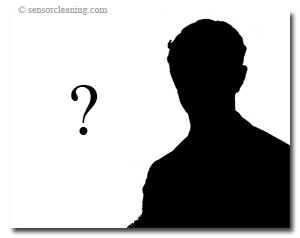
Who?
Now who in their right mind would want to disassemble their moderately to highly expensive Digital SLR camera to tinker with delicate electrical components? Am I that person?
This again is a warning: you can seriously damage your camera in this undertaking. There are highly sensitive components that can be damaged and most camera manufacturers do not recommend doing this yourself, but rather that you send it into a certified technician (most notably their own) to be serviced. Any damage caused while personally cleaning any part of the interior of the camera will probably null any warranty that you may have with the manufacturer, and replacement parts will be at your own expense.
Regardless of the warnings and dangers, many people around the world clean their own digital SLR camera sensors on a regular basis without any problems. While the majority of people that carry out this task are usually professional photographers, anybody with patience, care and attention can complete this feat with great results.
One of the main reasons that professional photographers find themselves cleaning their own camera, aside from saving money, is so that they minimize down time. Professional photographers need their camera: it is their source of income. They canít afford to wait X number of days/weeks while their camera is in the shop, or they will lose money. Time is money and down time translates to down money.
Another reason that professionals tend to clean their camera on their own more is frequency of use: the more you use your camera, the more prone it is to acquiring debris. This is basic common sense. If you are changing lenses frequently, exposing the camera cavity to the environment, you have a greater chance of drawing contaminants into the chamber area. With each snapshot the mechanics of the camera move briskly creating potential for stirring dust onto the sensor. With the increase in volume of snapshots taken, the potential of amassing dust on the sensor also increases.
Professional photographers often find themselves in a foreign locality: places that donít offer a great number of services, never mind an obscure service such as digital SLR sensor cleaning. For example, if a person is taking images in the middle of the Sahara desert, chances are it is going to be rather difficult for them to find a service department to clean their dirty sensor quickly so they can continue their shoot. Boy Scout motto: be prepared!
In conclusion, for the most part, professional photographers are more inclined to readily take up the task of personally cleaning their sensor, although anyone can do it. Some personal considerations one may ponder before attempting this venture are:
| 1) | How long will the process take if my camera is in the shop getting cleaned and can I be without my camera that long? |
| 2) | How much is it really going to cost me? |
| 3) | How often will I have to repeat this process? |
| 4) | Will I have access to services/resources if my sensor does incur debris? |
